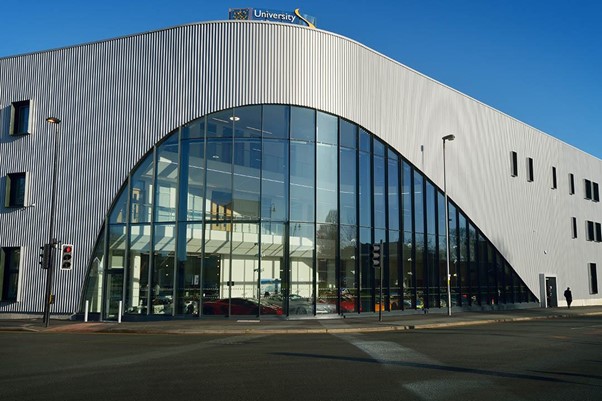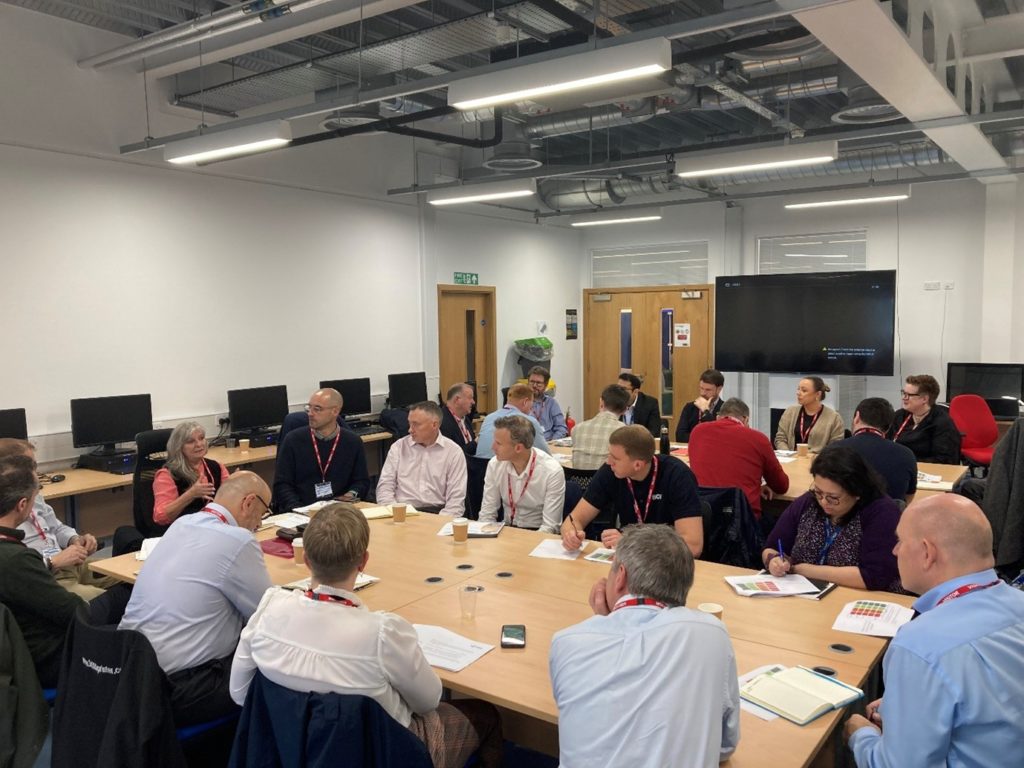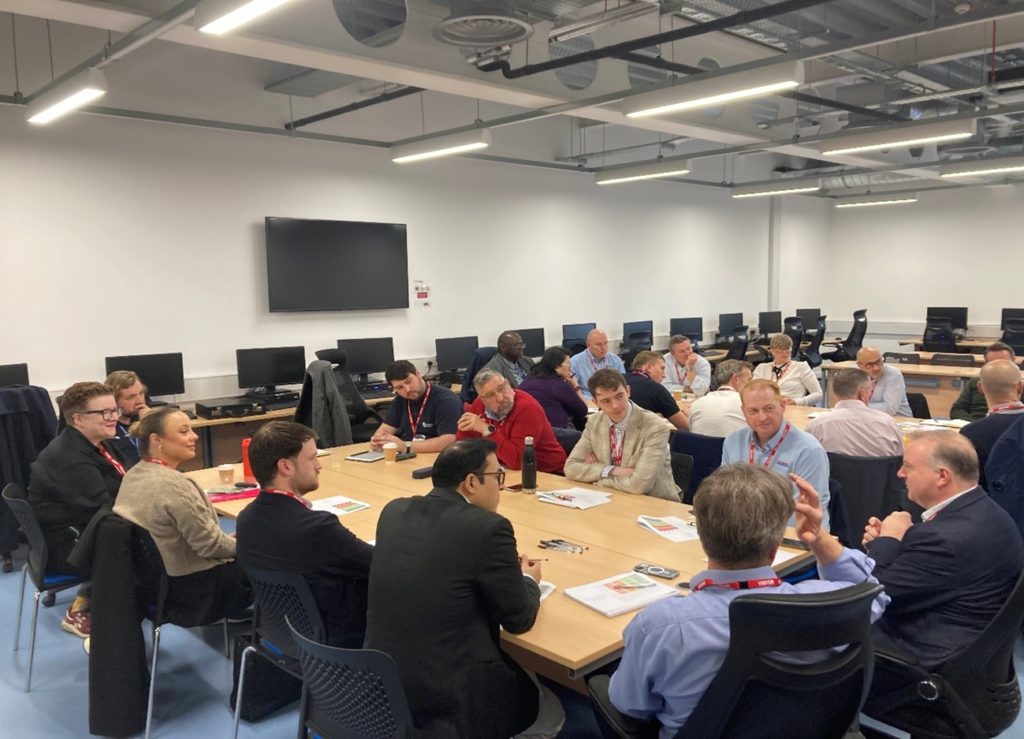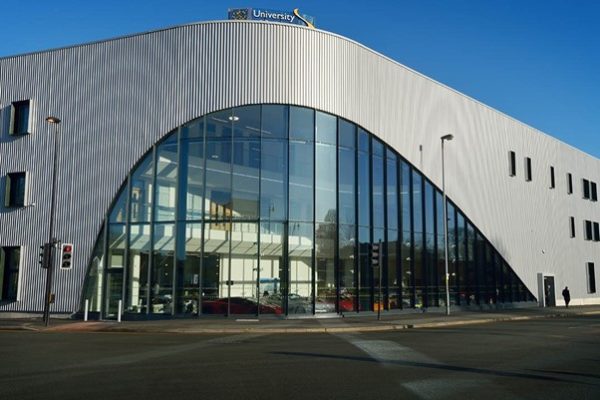Watchtower Digital Pathway Roundtable
On Wednesday 09th October, the North West Aerospace Alliance (NWAA) brought together advanced engineering and manufacturing SMEs from across Lancashire to explore the critical topic of digital transformation at a roundtable event hosted by the University of Bolton. Held at the university’s state-of-the-art National Centre for Motorsport Engineering (NCME), the event was designed as a part of the Watchtower Programme to provide support and actionable insights to help small and medium-sized enterprises (SMEs) navigate the complexities of Industry 4.0 and drive digital innovation within the region’s advanced engineering and aerospace sectors.

The event was organised by Gradient Business Services, (Sarah, Lyndon & Paul) who ran the two-session workshop aimed at benchmarking and understanding how SMEs could best transition toward optimising their digital capabilities. With digitalisation being a key enabler for boosting productivity and competitiveness, the roundtable fostered a collaborative environment, encouraging businesses to share experiences, challenges, and solutions.
Session 1: Benchmarking Digital Maturity – From Basic to Optimised
The first session began with a digital transformation benchmarking exercise, where participating SMEs assessed their current position on a maturity curve ranging from basic to reactive, proactive, and optimised. The goal was to help companies identify where they currently stood in terms of digital adoption and readiness for more advanced technological integration.
Key dimensions discussed included:
- Productivity: How well digital tools are improving efficiency, reducing downtime, and driving output.
- Applications: The extent to which businesses are using automation, AI, and data-driven applications to enhance operations.
- Processes: How digitised and streamlined manufacturing and business processes are.
- Data: The use of data analytics, cloud storage, and other tools to support decision-making and innovation.
- Infrastructure: The current state of IT infrastructure, cybersecurity, and digital tools in supporting modern, connected operations.
Discussions around the tables revealed a mix of maturity levels, with some companies still in the basic or reactive phases, relying on traditional methods and paper-based systems. Others were more proactive, exploring automation and digital tools but struggling with full-scale implementation. A few more advanced companies were approaching the optimised stage, leveraging data insights to improve processes in real time.
One key takeaway from this session was that many SMEs recognised the gap between their intentions and execution, often constrained by limited resources, expertise, or concerns over the upfront costs of digital transformation. However, the benchmarking exercise highlighted areas where even small improvements could yield significant gains in productivity and process optimisation.

Session 2: People, Processes, and Systems – Overcoming Barriers to Implementation
The second session shifted focus to an equally critical factor in digital transformation: people. Digital tools and systems can only be effective if they align with workforce capabilities and are supported by the right organisational culture.
Discussions centred on the role of employees in embracing new technologies, and how people interact with processes and systems. A key question posed to participants was: “Where are the barriers within your workforce that hinder the effective implementation of digital transformation, and what can we learn from previous failures?”
Some common barriers identified were:
- Skills Gaps: Many SMEs cited a lack of digital skills within their workforce as a major challenge. Workers who are accustomed to traditional manufacturing processes often struggle to adapt to the demands of new software, automation tools, and data-driven decision-making.
- Resistance to Change: Cultural resistance to change was noted as another significant obstacle. For some employees, the fear of redundancy or feeling overwhelmed by new systems created reluctance in embracing new technologies.
Integration Challenges: Companies shared stories of past failed implementations, where new systems had been introduced but lacked proper training, causing confusion and ultimately reverting to old ways. Lessons from these experiences stressed the importance of comprehensive training and incremental change, rather than overwhelming teams with too much at once.

Several businesses highlighted the importance of fostering a digital-first mindset and creating a more collaborative culture that promotes innovation from within. The session reinforced that successful digital transformation is not just about adopting new tools but ensuring those tools are integrated into day-to-day operations in a way that employees understand and feel confident using.
Key Insights and Takeaways
The roundtable provided valuable insights for Lancashire’s SMEs, offering a roadmap for how they can begin or advance their digital journeys. Some of the key takeaways included:
- Start small and scale: Instead of jumping straight to high-end solutions, start with pilot projects that demonstrate quick wins, building confidence and understanding within the workforce.
- Investment in skills: Ensuring employees have the necessary digital skills and ongoing training is critical to overcoming resistance and making transformation efforts sustainable.
- Collaboration is key: Working with partners, industry peers, and digital experts can ease the burden on smaller companies that may lack internal resources for large-scale transformation projects.
- Use data effectively: Investing in data analytics and infrastructure will help companies transition from a reactive approach to a proactive and optimised digital model.
The event highlighted that while the digital transformation journey can be complex and challenging for SMEs, the potential rewards—increased productivity, greater efficiency, and a more resilient business model—make it an essential focus for Lancashire’s aerospace and advanced engineering sectors.
By fostering collaboration between industry, academia, and business support services, events like these ensure that Lancashire’s aerospace SMEs have the knowledge, tools, and confidence to lead the way in the UK’s digital future.






